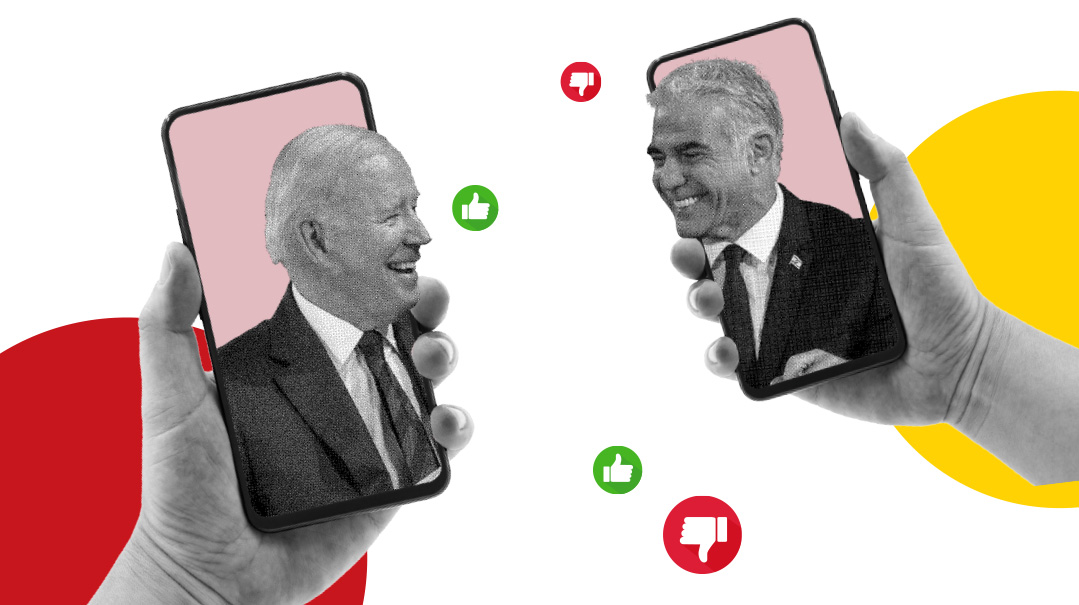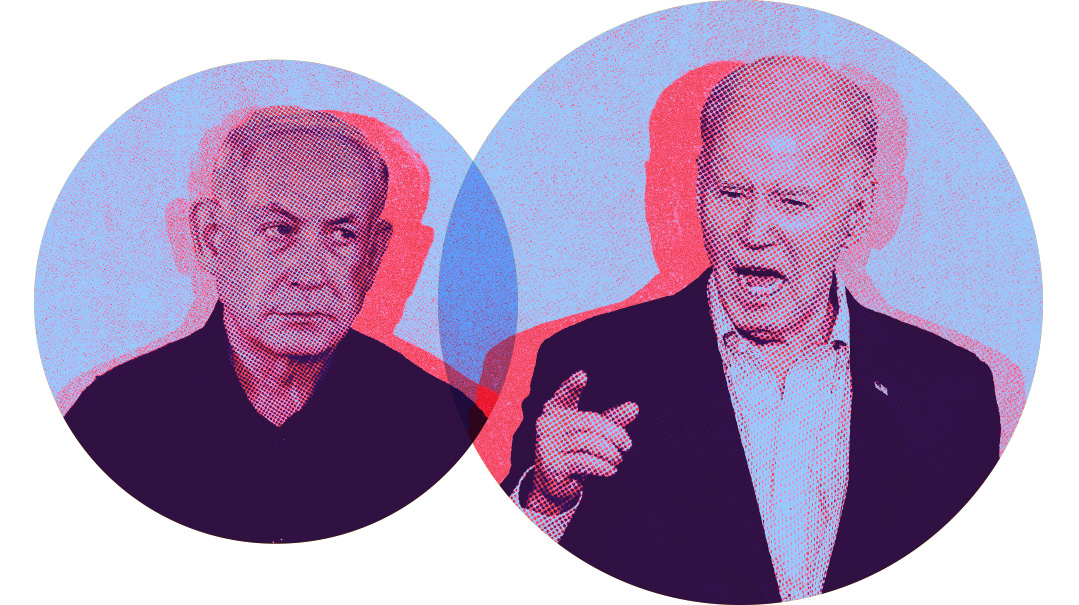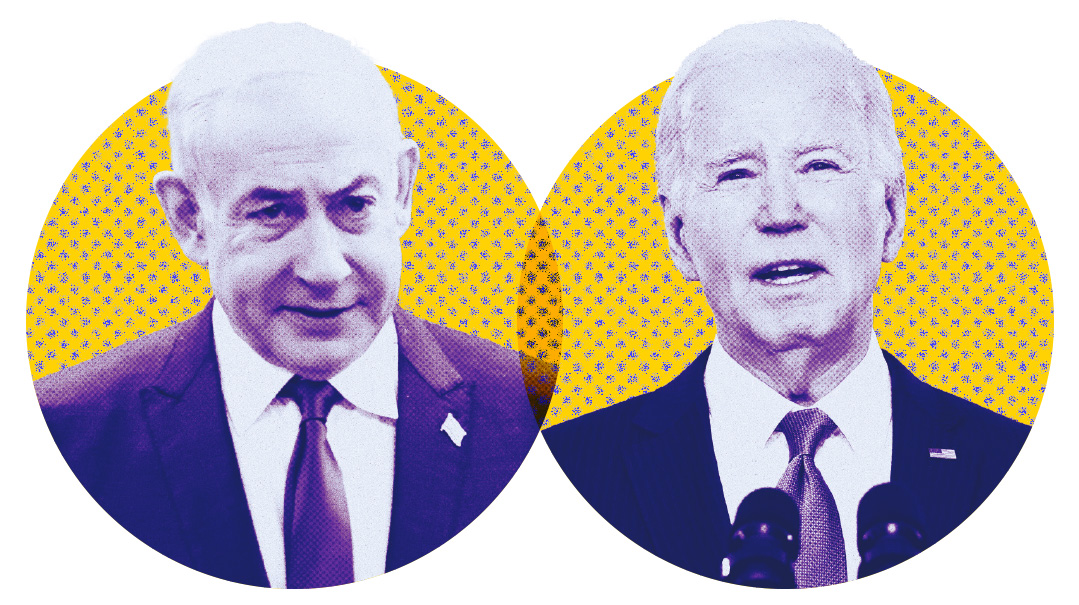Biden Visit: A Postmortem

Biden's been and gone — here's what he achieved

When it comes to political stagecraft, President Biden’s Israel visit was carefully choreographed.
Biden sought valuable public relations points, delivering lines such as “I am a Zionist” and showing deference when speaking with Holocaust survivors at Yad Vashem.
“Symbolism is important. The Israeli nation needs to feel secure about its connection with the United States in general, and with any particular president,” said Helit Barel, former head of the US-Israeli bilateral desk at Israel’s National Security Council. Barel addressed the foreign press corps on a Zoom call in Jerusalem on day two of Biden’s visit.
Some Israelis were more impressed with Biden’s Ray Ban sunglasses. One Israel Hayom writer researched its cost in Israel, and thankfully, stopped short of comparing that to the price in America’s much larger and more competitive retail market.
When it comes to substance over style, “the deliverables [of Biden’s visit] have been relatively modest,” at least for Israel, says David Schenker, a senior fellow at the Washington Institute and former assistant secretary of state for Near Eastern affairs, who participated with Barel in the Zoom call.
The Palestinian Authority emerged some $300 million wealthier, with two-thirds of that sum headed for UNRWA, the UN agency that perpetuates the Palestinian refugee situation. The US also inked some 13 investment deals with Saudi Arabia, even if it remains to be seen whether Biden achieved his primary goal — to secure a Saudi pledge to pump more oil.
Israel received its due in words, not deeds.
Biden and caretaker prime minister Yair Lapid signed a 1,460-word Jerusalem Declaration, with vows to fight anti-Semitism; all international efforts to delegitimize Israel, including BDS; and the rote proclamation that Iran will never be allowed to acquire a nuclear weapon.
With Biden back home, and Jerusalem traffic returning to its normal snarls, let’s take a broader look at the visit, its failures, successes, and what needs to be continued.

No Plan to Stop Iran
Israeli insecurity vis-à-vis Iran heightened during Biden’s visit, said David Schenker. When I asked him to elaborate, he said Biden’s policy is, in some ways, a carryover of Obama’s and Trump’s aversion to using military force.
“Periodically we go out and whack al-Qaeda or ISIS, but more often than not, we sanction them,” Schenker said. “So when the president talks about using ‘all tools of national power’ [to stop Iran] he means we’re going to use the Department of Treasury as much as we can and at the very last instant, if we have to, we’ll use some military force.”
Schenker contrasted that with Israel’s acquired experience that showing reticence in applying military force shrinks a country’s deterrent posture and emboldens adversaries to behave worse. “Israel’s insecurity stems from whether the United States will ultimately do what is required as a world leader and as the guarantor of the global rules-based world order.”

Bumbling in Bethlehem
If symbolism matters, Biden’s visit turned sour the moment his motorcade headed to East Jerusalem. Staffers removed the Israeli flag from his car, then added insult to injury, replacing it with a Palestinian flag before the meeting with PA Chairman Mahmoud Abbas in Bethlehem, which under the Oslo Accords is part of Area A, under full PA security and civilian control.
Biden blundered badly, conflating the history of the Catholic minority in Northern Ireland in colonialist Britain to the plight of Palestinians in Israel. I wouldn’t have expected Biden to call the Palestinians an “invented people,” as Newt Gingrich once did. But had Biden urged Palestinians to disarm, as Catholic militants eventually did in Northern Ireland, he might have made history, instead of trying to remake it.
Following reports that the US earmarked more than $200 million to UNRWA, Hillel Neuer, executive director of UN Watch, tweeted that this money will only perpetuate the Arab-Israeli conflict.
“We easily identified 120 UNRWA teachers, school principals, and other employees who praise Hitler, glorify terrorist attacks, and spread anti-Semitism,” Neuer wrote.
Could the Biden administration be unaware of this, or are they just turning a blind eye?

Avoiding Irritants
Sometimes success is measured in damage avoidance. Despite his missteps in Bethlehem, Biden gave only mere lip service to the two-state solution. By declining to meet with the American parents of slain Al Jazeera journalist Shireen Abu Akleh, he sidestepped the growing pressure to blame Israel for her death. Abu Akleh was killed on a dangerous assignment when covering a battle between the IDF and PA terrorists in Jenin, and it’s still not clear who fired the fatal shot. And Biden & Co. took off without pressuring Israel to agree to a controversial US proposal to locate its PA consulate in Jerusalem.

Fly the Friendly Skies
Under cover of permitting direct flights for Israeli Muslims who are about to make their annual pilgrimage to Mecca, Saudi Arabia announced it would open its air space to all global carriers. Not all of the details or timing have been finalized, but if it goes through, it will shorten flight time from Ben-Gurion Airport to East Asia by up to three hours, not to mention the fuel savings. However, the Saudis clarified that this should not be construed as a step toward normalization of ties with Israel, which they insist is still contingent on a two-state solution.

Pressing the Saudi Reset Button
Progressive Democrats wasted no time bashing Biden for his meeting with Crown Prince Mohammed bin Salman (MBS) but as the quip goes, what does that have to do with the price of gas? When Biden confronted MBS over his alleged role in the 2018 murder of Saudi journalist Jamal Khashoggi, MBS lashed back with what liberals would call “what-about-isms,” lecturing Biden for US mistreatment of POWs in Iraq and for refusing to meet with Shireen Abu Akleh’s parents.
Biden’s backpedaling — from initially trying to turn MBS into a pariah to greeting him with the nouveau-cool American fist bump — represents a triumph of pragmatism over principle, Schenker said. “MBS is going to be the king of Saudi Arabia for the next 40 years, so it’s not going to be productive to brutalize him.”

Early Warning on the Horizon
In his talks with Israel and the Saudis, Biden revived an idea first floated by the IDF in 2015 to develop a Middle East Air Defense (MEAD) to provide early warning against enemy attacks, mainly from Iran.
“This would be a huge asset, not only for Israel but also for all the other countries that would participate,” Helit Barel said.
Israel and the Saudis have reportedly held clandestine defense talks in recent months, and IDF Chief of Staff Aviv Kochavi met his counterparts in Morocco this week. It’s all talk for now, and an official Saudi communique appeared to reject it, but Barel says it’s no “pie in the sky.”
“It’s something that can happen over time as interests correlate strongly,” she said.
(Originally featured in Mishpacha, Issue 920)
Oops! We could not locate your form.






